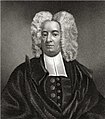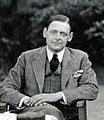Harvard College
Harvard College is the undergraduate college of Harvard University, a private Ivy League research university in Cambridge, Massachusetts, United States. Part of the Faculty of Arts and Sciences, Harvard College is Harvard University's traditional undergraduate program, offering AB (Bachelor of Arts) and SB (Bachelor of Science) degrees. It is highly selective, with fewer than four percent of applicants being offered admission as of 2022.[2][3]
Type
Harvard College students participate in over 450 extracurricular organizations[4] and nearly all live on campus. First-year students reside in or near Harvard Yard and upperclass students reside in other on-campus housing.
Academics[edit]
The four-year, full-time undergraduate program has a liberal arts and sciences focus.[26][27]
To graduate in the usual four years, undergraduates normally take four courses per semester.[28]
Midway through the second year, most undergraduates join one of fifty academic majors; many also declare a minor (secondary field). Joint majors (combining the requirements of two majors) and special majors (of the student's own design) are also possible.[27]
Most majors lead to the Artium Baccalaureus (AB). Some award the Scientiae Baccalaureus (SB). There are also dual degree programs permitting students to earn both a Harvard AB and a Master of Music (MM) from either the New England Conservatory of Music or the Berklee College of Music over five years.[29]
In most majors, an honors degree requires advanced coursework and/or a senior thesis.[30]
Harvard College students must take a course in each of four General Education categories (Aesthetics and Culture; Ethics and Civics; Histories, Societies, Individuals; Science and Technology in Society)[31] as well as a course in each of three academic divisions (Arts and Humanities; Social Sciences; Science and Engineering and Applied Science). They must also fulfill foreign language, expository writing, and quantitative reasoning with data requirements.[31]
Exposure to a range of intellectual areas in parallel with pursuit of a chosen major in depth fulfills the injunction of former Harvard president Abbott Lawrence Lowell that liberal education should produce "men who know a little of everything and something well".[32]
Some introductory courses have large enrollments, but most courses are small: the median class size is 12 students.[33]
Funding and faculty mentorship for research is available in all disciplines for undergraduates at all levels.[34]

![US president John Adams[54] (AB, 1755)](http://upload.wikimedia.org/wikipedia/commons/thumb/2/25/US_Navy_031029-N-6236G-001_A_painting_of_President_John_Adams_%281735-1826%29%2C_2nd_president_of_the_United_States%2C_by_Asher_B._Durand_%281767-1845%29-crop.jpg/95px-US_Navy_031029-N-6236G-001_A_painting_of_President_John_Adams_%281735-1826%29%2C_2nd_president_of_the_United_States%2C_by_Asher_B._Durand_%281767-1845%29-crop.jpg)
![US president John Quincy Adams[55][56] (AB, 1787)](http://upload.wikimedia.org/wikipedia/commons/thumb/6/64/John_Quincy_Adams.jpg/98px-John_Quincy_Adams.jpg)




![US president and Nobel laureate in peace Theodore Roosevelt[57] (AB, 1880)](http://upload.wikimedia.org/wikipedia/commons/thumb/1/19/President_Theodore_Roosevelt%2C_1904.jpg/91px-President_Theodore_Roosevelt%2C_1904.jpg)
![US president Franklin D. Roosevelt[58] (AB, 1903)](http://upload.wikimedia.org/wikipedia/commons/thumb/6/6e/FRoosevelt.png/96px-FRoosevelt.png)




![US president John F. Kennedy[59] (AB, 1940)](http://upload.wikimedia.org/wikipedia/commons/thumb/c/c3/John_F._Kennedy%2C_White_House_color_photo_portrait.jpg/92px-John_F._Kennedy%2C_White_House_color_photo_portrait.jpg)








![Microsoft founder Bill Gates (1977)[b]](http://upload.wikimedia.org/wikipedia/commons/thumb/1/19/Bill_Gates_June_2015.jpg/85px-Bill_Gates_June_2015.jpg)

![Facebook co-founder Mark Zuckerberg (2006)[b]](http://upload.wikimedia.org/wikipedia/commons/thumb/1/18/Mark_Zuckerberg_F8_2019_Keynote_%2832830578717%29_%28cropped%29.jpg/96px-Mark_Zuckerberg_F8_2019_Keynote_%2832830578717%29_%28cropped%29.jpg)
